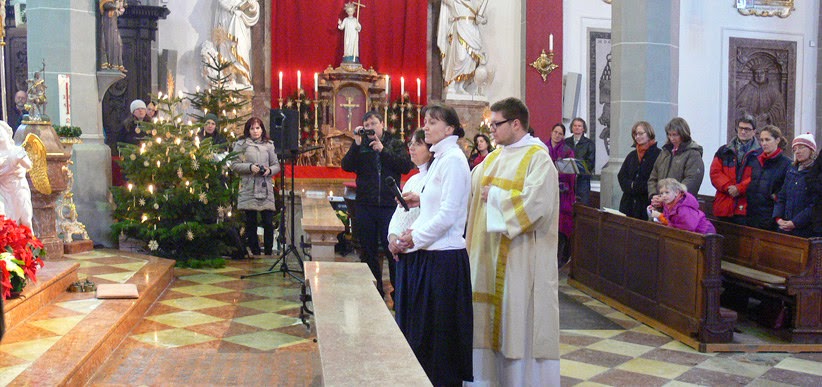One of the things the Lord reminds us of in today’s readings is that Christianity is real. Unlike many religions or philosophies, Christianity is deeply anchored in history: in time and space. Whereas some belief systems are about getting reality around me to fit into my idea, Christianity is first of all a reality, a real part of our time and space, which then affects our heart, and the way we see the world, and, ultimately, reality.
Today’s readings are littered with references to the action of God in time and space. It’s true that our first reading doesn’t seem that grounded: one might be tempted to wonder to what extent the billowing clouds of Isaiah’s visions are more from something he is smoking rather than pure inspiration. Yet Isaiah’s vision is grounded enough to be able to be located in a concrete place in history: In the year of King Uzziah’s death.
St Paul does exactly the same thing in the second reading: some people in Corinth are a bit worried that Paul’s been taking this whole Jesus-Resurrection thing too literally: surely
Jesus was just a good man who built community, whose apostles either told lies about him or got conned by him. St Paul is unshakeably clear: Jesus did not just appear privately to an evangelist and dictate the gospel to him. Rather the risen Jesus appeared first to Cephas and secondly to the Twelve. Next he appeared to more than five hundred of the brothers at the same time, most of whom are still alive, though some have died; then he appeared to James, and then to all the apostles; and last of all he appeared to me too. In other words: the Risen Jesus is public history: and, since he is risen, is public present and future too.
And of course there is today’s Gospel. Christianity is so real that the almighty Son of God makes an appearance in the last place anyone would expect: on the smelly fishing trawler of a middle class businessman. And this is when the most real thing of all happens: Jesus asks him to do something he doesn’t want to do. Peter doesn’t want to do it not because its immoral, or too far fetched, or even pointless. The thing that Jesus asks Peter to do is something hard - something in fact Peter knows he should do but will find hard.
For this is what we mean when we say Christianity is real. It affects my daily life. Christ’s Body the Church does not ask me things above and beyond of what I think I should do, but rather hard things that, deep down, I know really I should be doing. Taking that little bit of extra patience with my persistent child - or parent or spouse or mother-in-law. Going to Sunday mass even if its my only day off and the priest is too boring - or provocative. Receiving my spouse’s fertility as a gift. All these things where Christianity is not so much about big gestures which make me feel good, but principally small, tiny gestures of love towards those God has put in my life: because he is doing them all the time for me.
Its also why Christianity affects our politics. Because Christianity is real, and true, and part of the fabric of the universe, its not surprising that politicians and policies with Christianity behind them can often be far more rational, scientific, human and compassionate than some of the truly irrational, unscientific and heartless fads that sometimes come from self-proclaimed purely rational people. This is not surprising: it is irrational to be purely rational - because human beings are more than a bit of logic. Each of us is an absolutely unique complex and mistake-prone combination of head, heart, memory, emotion, body and senses. And it is people, and not body parts, that we elect to represent us. Political parties know that and so don’t post up pictures of someone’s arm or willpower. This is why a good Christian politician doesn’t shut away his Christianity every time a moral issue comes up: rather, like anybody else, he assesses the situation using the light his Christianity sheds on the problem. This upcoming election year is a chance for us to take stock of who in parliament acts in integrity of their beliefs and those who don’t: and to vote accordingly.
The Editor






